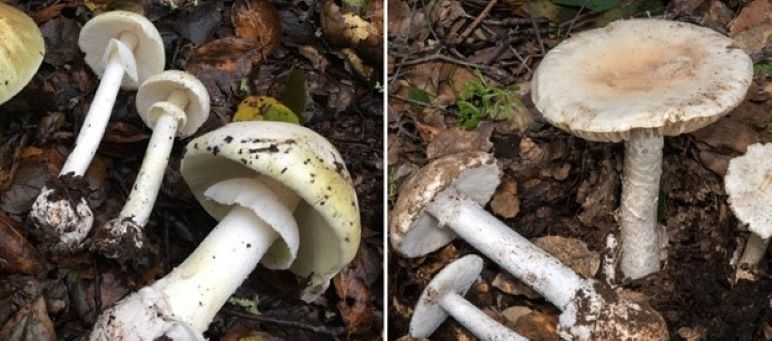The Golden Chanterelle may be the state's new official mushroom, but the East Bay Regional Park District is reminding residents that some fungi are best appreciated for their beauty, not taste.
The park district sent out its annual wild mushroom warning Friday as winter rains spur spores and mushrooms begin popping up.
There are two kinds that both people and pets need especially avoid, and their names say it all: the death cap (Amanita phalloides) and the western destroying angel (Amanita ocreata).
Both of these mushrooms contain amatoxins, which are molecules that are deadly to most animals--even primates like us. Symptoms don't appear until up to 12 hours later, making them a great plot element in an Agatha Christie novel but causing extreme gastrointestinal distress that progresses to liver and kidney failure to anyone who ingests them.
According to Dave Mason, public information supervisor for the park district, these species are responsible for most cases of mushroom poisonings in California.
Both are mostly associated with oak trees and can be found anywhere that oak roots are present.
The death cap is a medium to large mushroom that typically has a greenish-gray cap, according to Mason. It has white gills, a white ring around its stem, and a large white sac at the base of its stem. Not native to California, it was introduced to North America by being attached to the roots of European cork oaks and is now "steadily colonizing the West Coast," said Mason.
As for the western destroying angel, it is native to the state but nonetheless just as poisonous as the death cap. It is medium to large with a creamy white cap, white gills, a white ring around its stem that can disappear with age, and it enjoys the company of oak trees exclusively. It usually appears late winter and into spring.
Anyone gamboling through the East Bay Regional Parks should heed the warnings about these mushrooms, but Mason reminds all park visitors that the removal of any mushrooms is prohibited, edible or not.
To learn more about other poisonous mushrooms in our area, go to ebparks.org/safety/trails/toxic-mushrooms or visit the Tilden Fungus Fair in late January ebparks.org/events/tilden-fungus-fair.
Katy St. Clair is a reporter with Bay City News.

